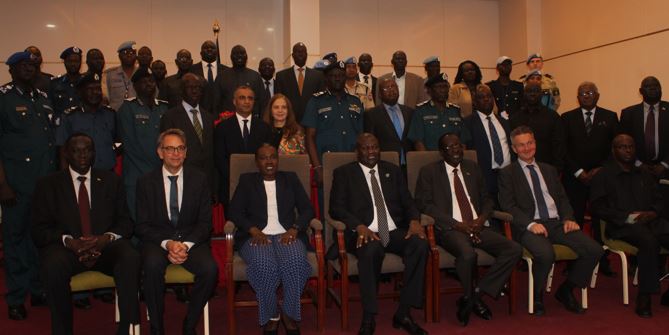South Sudan First Vice President Dr. Riek Machar Teny on Tuesday assured migrants of the government’s commitment to protect their rights and welfare.
Speaking during the opening of the Annual Migration Summit in Juba, Dr. Machar said the government will find better solutions that prioritize safety, equity, and opportunity for migrants.
“We should protect migrant rights. Many migrants, especially those without legal status, face exploitation and abuse, and sometimes even those who have legal documents,” he said.
Machar emphasized the importance of integrating migrants to enable them to contribute to nation-building.
“If they come as a group and they are not going elsewhere, you need to integrate them into society because migrants bring cultural, social, and economic benefits to our communities,” he stated. “It is vital to provide them with opportunities to integrate fully by investing in education, language training,g and access to health care and social services by creating inclusive policies.”
For his part, International Organization for Migration (IOM)Deputy Chief of Mission Asar Muhamed said South Sudan continues to be both a source and destination for various groups of migrants, including refugees, migrant laborers, and asylum seekers from different countries.
“Currently, thousands of South Sudanese returnees and Sudanese refugees are fleeing the ongoing conflict in Sudan and seeking safety in South Sudan,” he explained. “Around 800,000 people have crossed the border since last year when the hostilities began in Sudan, and we see more and more people crossing due to uptake in the conflict in Sudan.”
The three-day Inter-ministerial Summit on migration governance was organized by UN IOM in partnership with the interior ministry and brought ministers with a migration mandate, experts on migration-related issues, development partners, and migrant communities in South Sudan.
It seeks to develop a unified, cross-sectoral approach to migration governance that reflects South Sudan’s unique migration context and promotes sustainable development.




